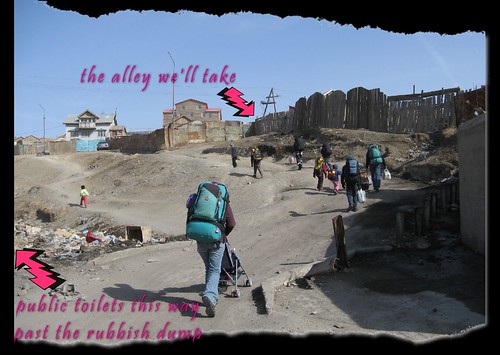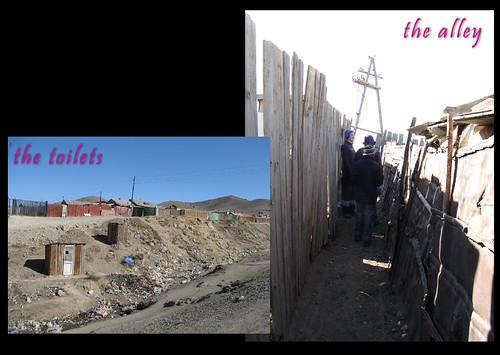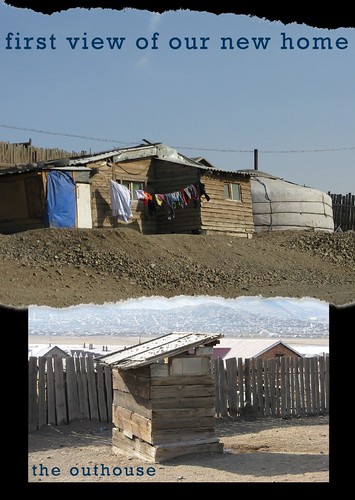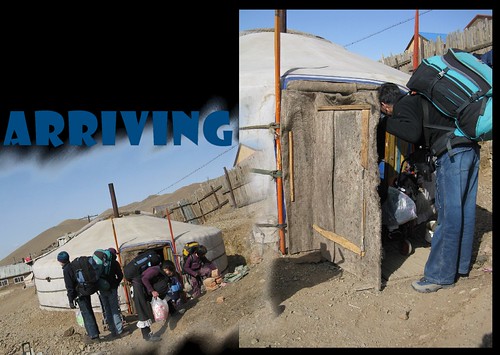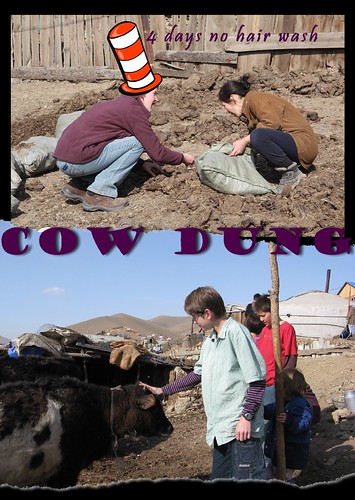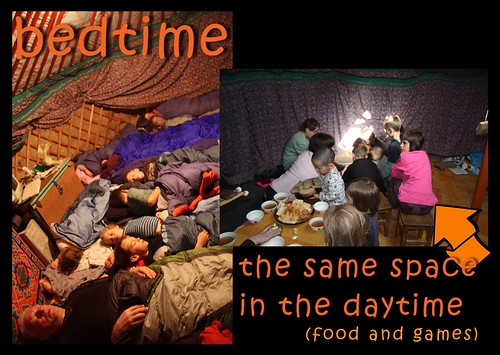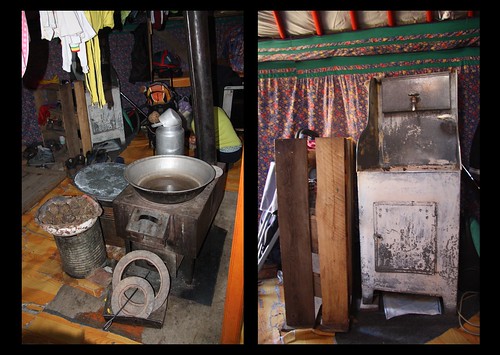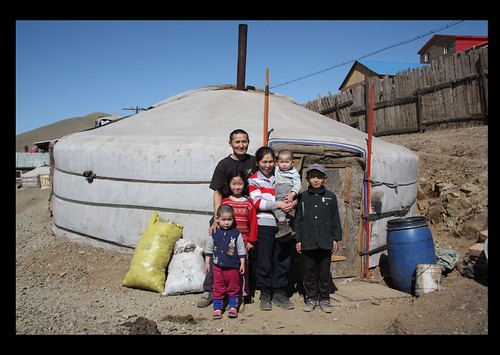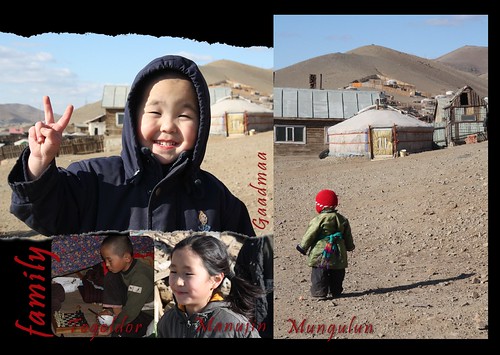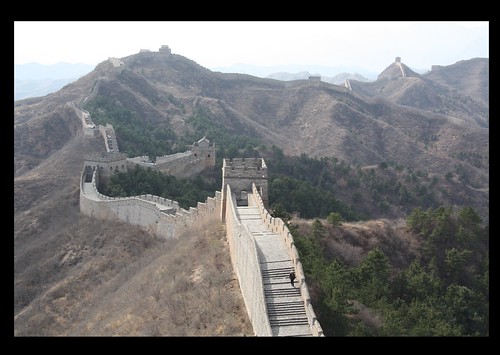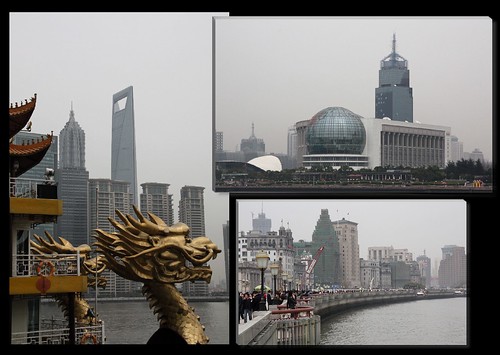*inhospitable*
Wednesday, April 8th, 2009by both of us
Ulaanbaatar, Mongolia
Certainly this is a hard country to live in; from winter to summer there are wild extremes in temperature (in the region of 80-100 degrees C), hard winters kill off most vegetation, the dry spring brings countless dust-storms until the rains come, relieving the country with a green blanket for only a few short months. What the summers lack in length, they make up for in intensity – short but stifling hot, up to 40 degrees in Ulaanbaatar.
Civic infrastructure does little to add to the ease of life. Outside the capital, there is next to nothing. Even in the city 60% of the population does not have tapped water, neither for drinking nor cleaning nor toiletting. There are busses, but they only reach the city limits, not beyond. Rubbish collection is supposed to be once a month, but it rarely happens that way. There are libraries, but only three for a million people. Heating in apartments is a blessing through the winter, but no-one has any control over it…it is turned on at the end of October and will not be turned off until May, even if spring comes early as it has this year.
We were told that in the last severe winter when the Red Cross sent international aid, it did not arrive until the snow was already too deep to transport it across the country. Then when the snow melted, the ground was too muddy to allow transportation. And so at the beginning of summer, much too late to be of any assistance to the people who had been starving, the sacks of food were to be found at the market….for sale.
In a country that has broken away politically from neighbours both to the east and west, there is supposedly new scope for democracy and freedom here now. Hard to reconcile this with the fact that six demonstrators were killed in the square just last year, three of them shot in the back as they ran away. And what about the fact that boxes of voting papers “went missing” after the election, never to be seen again?
She’s one hard place.
And maybe that accounts for our second-in-Mongolia, fourth-worldwide couchsurfing experience to be…well….not as inviting as previous ones. Made me think about Some Ways To Make Your Guests Feel At Home (aka hospitality).
- Lend guests a map and give very detailed directions to the accommodation.
- Offer everyone a cup of tea upon arrival.
- But do not introduce husband or children.
- Provide bedding so dusty it could be called a beach (or more appropriately, perhaps, a desert)
- Provide games and toys for the children to play with.
- Request guests bring a gift for your children, and when it is not voluntarily produced soon enough after guests’ arrival, ask for it.
- Suggest taking a walk down to the river.
- Ask guests to cook a meal…..and then……
- Insist on accompanying the guests on the food-buying expedition, ensuring plenty of food is purchased at guests’ expense, much of which will not be consumed until guests have left.
- Allow your two children to eat all ten lollipops purchased with the intention of all children enjoying one each.
- Ask guests to buy a new electrical splitter box as your old one has broken.
- Send guests out to collect and pay for water, firewood and coal (fair enough, we did use some – no complaints there).
- Insist guests NOT take the bus in to town (at a total round trip cost of 1,200 togrog), and take them in your own car. Guests will have to wait while you visit an internet cafe, do your banking and chat with your friends at the market. They will then have to pay for purchases and spend 10,000 togrog on petrol.
- When guests enquire about food that has “disappeared”, explain that it has been eaten or, better still, manage to find it. Hunk of lamb remains a mystery though.
- Sit at the computer playing games while the dinner is prepared.
- Take the meal your guests have cooked for you to another room and supplement it with your personal provisions while guests eat alone.
All of the above was our experience, and after staying with families, who had welcomed us into their lives, this time we were left with an overall sense of perhaps being used…not quite the hospitable spirit of couchsurfing. We will later be told *this* was the typically Mongolian welcome and the first one was the unusual one! And that we were lucky nothing was stolen <wink>
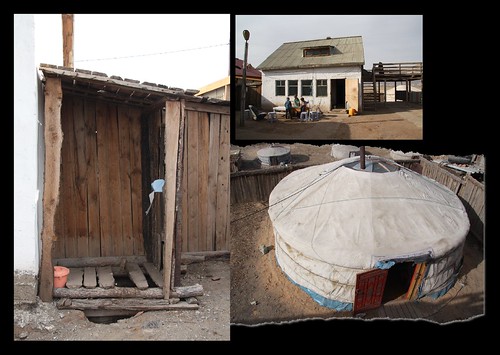
the ger we stayed in, hosts’ house and *out*house
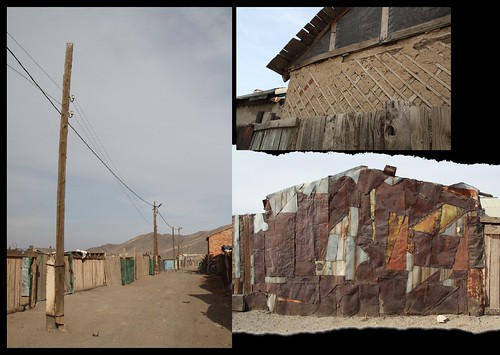
the street where we stayed




